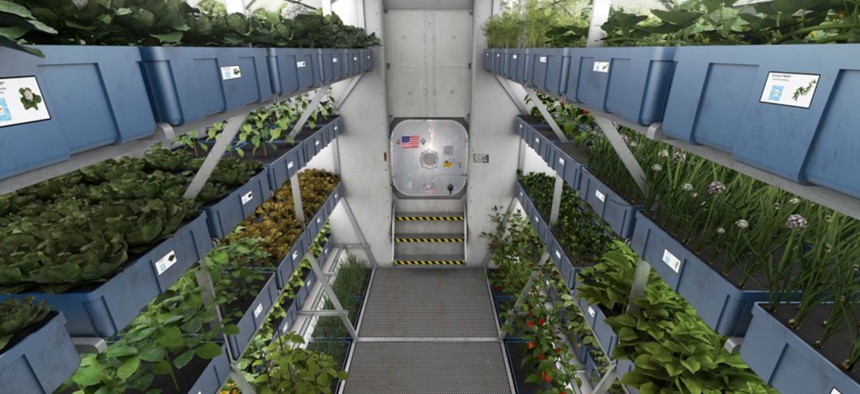International Space Station Astronauts' New Hobby? Space-Gardening.

Growing crops on the International Space Station is the next frontier in space exploration. NASA
A crop of red lettuce could pave the way to future crops grown on the space station and even on other planets.
Space: the final frontier for leafy greens.
The first food grown and harvested in space—a crop of red lettuce—is about to be eaten by astronauts aboard the International Space Station. The lettuce was grown for 15 months with a system called Veg-01, which uses red, blue, and green LED lights to grow plants in a small space.
NASA said that the astronauts will clean the lettuce with citric-acid-based sanitizing wipes—which sounds like a terrible dressing, frankly—before eating half of their harvest on Monday, August 10. The other half will be frozen and brought back to Earth for analysis. It's unclear how the lettuce will be prepared, whether it'll be part of some sort of space salad or just as garnish for regular dehydrated space food.
(NASA)
While Monday's healthy snack won't likely be particularly filling for the astronauts, it could pave the way to future crops grown on the space station and even on other planets. As NASA and other space agencies look into longer missions to distant places like Mars, they will need to develop ways for astronauts to sustain themselves along the way and when they get there.
"There is evidence that supports fresh foods—such as tomatoes, blueberries, and red lettuce—are a good source of antioxidants," Ray Wheeler, the project's lead researcher, told NASA's website. "Having fresh food like these available in space could have a positive impact on people's moods and also could provide some protection against radiation in space."
An artist's rendering of what Martian garden might look like. (NASA)
NASA said it hopes "space-gardening" will become a "valued feature of life aboard the space station and in the future on Mars." Add a green thumb to the long list of traits you'll need in the future to become an astronaut.







